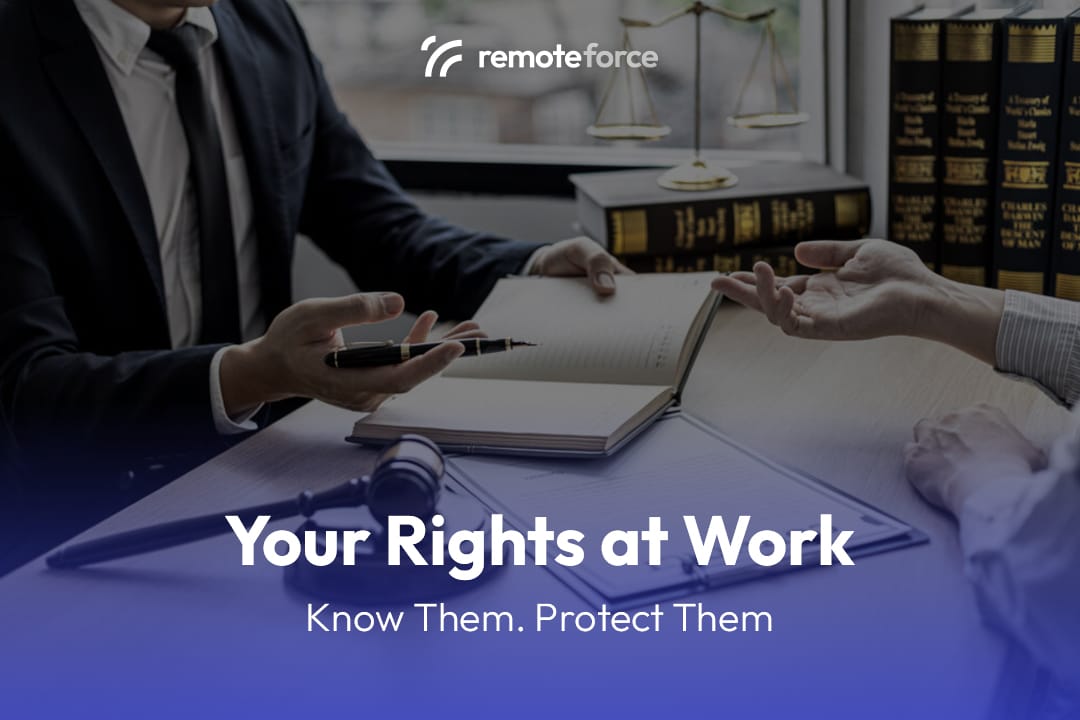Your workplace should be a place of growth, productivity, and respect. Yet, unfortunately, not every job experience is positive. Understanding your legal rights at work is fundamental to protecting yourself, advocating for fair treatment, and ensuring a safe and equitable environment. Whether you’re just starting your career or have been in the workforce for years, knowing your entitlements empowers you to navigate challenges and stand up for what’s right.
This article will cover key aspects of employee rights, helping you stay informed and empowered.
Table of Contents
ToggleWhy Understanding Your Workplace Rights Matters
In the complex landscape of employment, legal protections exist to create a balanced relationship between employers and employees. These laws are designed to prevent exploitation, ensure fair compensation, promote safety, and prohibit discrimination. Ignoring or being unaware of your rights can leave you vulnerable to unfair practices, wage theft, or even unsafe conditions.
According to data from the U.S. Equal Employment Opportunity Commission (EEOC), thousands of workplace discrimination charges are filed annually, highlighting the persistent need for employees to be aware of their protections. Similarly, workplace safety regulations, enforced by bodies like OSHA (Occupational Safety and Health Administration), save lives and prevent injuries every day. Your awareness of these rights is the first line of defense.
Core Legal Rights at Work for Every Employee Should Know

While specific laws can vary by country, state, or even industry, several fundamental legal rights are widely recognized and protected.
1. Fair Wages and Overtime Pay
One of the most basic rights is to be compensated fairly for your work. This typically involves:
- Minimum Wage: You have a right to be paid at least the legally mandated minimum wage. This rate can vary significantly by location and may be updated periodically.
- Overtime Pay: For non-exempt employees (those not classified as managers or professionals earning a high salary), you’re generally entitled to a higher rate of pay (often 1.5 times your regular rate) for hours worked beyond a standard workweek (e.g., 40 hours in the U.S.).
- Timely Payment: Your employer must pay you regularly and on time, usually on a designated payday.
- Proper Deductions: Your employer can only deduct certain amounts from your paycheck (e.g., taxes, health insurance premiums) and usually requires your authorization for others.
Real-World Tip: Always keep records of your hours worked, pay stubs, and any communication regarding your wages. This documentation can be crucial if you ever need to dispute pay issues. Many employees have recovered significant amounts through legal action due to wage theft.
2. Protection Against Discrimination
Discrimination in the workplace is illegal and unacceptable. Laws are in place to protect employees from being treated unfairly based on specific characteristics. Common protected classes include:
- Race, Color, Religion, Sex (including pregnancy, sexual orientation, and gender identity), National Origin, Age (40 or older), Disability, and Genetic Information.
- This protection applies to all aspects of employment, including hiring, firing, promotions, training, benefits, and compensation.
Expert Insight: “Workplace discrimination isn’t always overt,” says a leading employment law attorney. “It can be subtle, manifesting in missed opportunities or differential treatment. Documenting incidents, no matter how small, is vital for building a case.”
3. A Safe and Healthy Workplace
You have a fundamental right to work in an environment free from recognized hazards that could cause serious harm or death. Employers are legally obligated to:
- Provide a workplace free from recognized hazards.
- Comply with occupational safety and health standards.
- Provide necessary safety equipment and training.
- Inform employees about potential hazards.
- Keep accurate records of work-related injuries and illnesses.
Actionable Insight: If you believe your workplace is unsafe, you have the right to report it without fear of retaliation. Many regulatory bodies offer anonymous reporting mechanisms. You also have the right to refuse work that poses an imminent danger to your life or health, under specific circumstances.
Also Read: Avoid These 5 Critical Legal Mistakes By Outsourcing Smart Legal Services
4. Right to Organize and Collective Bargaining
In many countries, employees have the legal right to form or join a union and to engage in collective bargaining to negotiate with their worker over wages, hours, and other terms and conditions of employment. Employers are generally prohibited from interfering with these rights.
5. Protection Against Retaliation
You have the right to exercise your legal rights without fear of negative consequences. This means your employer cannot legally punish you (e.g., fire you, demote you, reduce your pay) for:
- Filing a complaint about discrimination or safety violations.
- Reporting illegal activity (whistleblowing).
- Requesting accommodations for a disability.
- Taking protected leave (e.g., family medical leave).
Key Takeaway: Retaliation is often difficult to prove, but documentation is your strongest ally. Keep records of all communications, performance reviews, and incidents that might be related to your protected activity.
6. Privacy Rights (with limitations)
While not as absolute as some other rights, employees generally have some expectation of privacy in the workplace regarding personal communications, lockers, and personal belongings. However, this right is often balanced against an employer’s legitimate business interests and explicit policies. Be aware of your company’s policies on monitoring and surveillance.
When to Seek Legal Counsel
Knowing your rights is the first step, but sometimes, issues arise that require professional guidance. You should consider seeking legal advice if:
- You believe you’ve been subjected to discrimination or harassment.
- You are experiencing wage theft (unpaid wages, overtime, or illegal deductions).
- You’ve been wrongfully terminated or believe you’re being retaliated against.
- You have serious concerns about workplace safety that your employer is not addressing.
- You need help understanding a severance agreement or employment contract.
Don’t wait until a situation escalates beyond control. Early legal intervention can often resolve issues more effectively and prevent further harm.
Conclusion: Empowering Yourself in the Workplace
Your legal rights at work are not just abstract concepts; they are tangible protections designed to ensure you are treated fairly, paid correctly, and work in a safe environment. By understanding these fundamental rights—from fair wages and protection against discrimination to the right to a safe workplace—you empower yourself to identify potential issues, advocate for your well-being, and know when to seek help.
If you find yourself in a challenging workplace situation, or simply want to understand your employment rights more deeply, don’t hesitate to reach out. At RemoteForce, we connect you with experienced legal professionals who specialize in employment law. Our network of experts can provide the nuanced advice and representation you need to protect your interests and ensure justice in your professional life.
Ready to get clarity on your employment rights? Contact RemoteForce today to speak with a legal expert.
- How Graphic Design Works: A Step-by-Step Process Guide - January 30, 2026
- Why Graphic Design Matters: The Business Impact You Can’t Ignore - January 30, 2026
- Types of Graphic Design: A Complete Guide to Design Specializations - January 30, 2026



